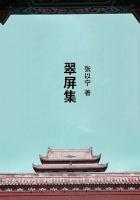In August of the year 1648 after the three-days' battle of Preston Pans, Cromwell made an end to this second civil war, and took Edinburgh. Meanwhile his soldiers, tired of further talk and wasted hours of religious debate, had decided to act on their own initiative. They removed from Parliament all those who did not agree with their own Puritan views. Thereupon the "Rump," which was what was left of the old Parliament, accused the King of high treason. The House of Lords refused to sit as a tribunal. A special tribunal was appointed and it condemned the King to death. On the 30th of January of the year 1649, King Charles walked quietly out of a window of White Hall onto the scaffold. That day, the Sovereign People, acting through their chosen representatives, for the first time executed a ruler who had failed to understand his own position in the modern state.
The period which followed the death of Charles is usually called after Oliver Cromwell. At first the unofficial Dictator of England, he was officially made Lord Protector in the year 1653. He ruled five years. He used this period to continue the policies of Elizabeth. Spain once more became the arch enemy of England and war upon the Spaniard was made a national and sacred issue.
The commerce of England and the interests of the traders were placed before everything else, and the Protestant creed of the strictest nature was rigourously maintained. In maintaining England's position abroad, Cromwell was successful. As a social reformer, however, he failed very badly. The world is made up of a number of people and they rarely think alike.
In the long run, this seems a very wise provision. A government of and by and for one single part of the entire community cannot possibly survive. The Puritans had been a great force for good when they tried to correct the abuse of the royal power. As the absolute Rulers of England they became intolerable.
When Cromwell died in 1658, it was an easy matter for the Stuarts to return to their old kingdom. Indeed, they were welcomed as "deliverers" by the people who had found the yoke of the meek Puritans quite as hard to bear as that of autocratic King Charles. Provided the Stuarts were willing to forget about the Divine Right of their late and lamented father and were willing to recognise the superiority of Parliament, the people promised that they would be loyal and faithful subjects.
Two generations tried to make a success of this new arrangement.
But the Stuarts apparently had not learned their lesson and were unable to drop their bad habits. Charles II, who came back in the year 1660, was an amiable but worthless person. His indolence and his constitutional insistence upon following the easiest course, together with his conspicuous success as a liar, prevented an open outbreak between himself and his people. By the act of Uniformity in 1662 he broke the power of the Puritan clergy by banishing all dissenting clergymen from their parishes. By the so-called Conventicle Act of 1664 he tried to prevent the Dissenters from attending religious meetings by a threat of deportation to the West Indies. This looked too much like the good old days of Divine Right. People began to show the old and well-known signs of impatience, and Parliament suddenly experienced difficulty in providing the King with funds.
Since he could not get money from an unwilling Parliament, Charles borrowed it secretly from his neighbour and cousin King Louis of France. He betrayed his Protestant allies in return for 200,000 pounds per year, and laughed at the poor ******tons of Parliament.
Economic independence suddenly gave the King great faith in his own strength. He had spent many years of exile among his Catholic relations and he had a secret liking for their religion. Perhaps he could bring England back to Rome! He passed a Declaration of Indulgence which suspended the old laws against the Catholics and Dissenters. This happened just when Charles' younger brother James was said to have become a Catholic. All this looked suspicious to the man in the street People began to fear some terrible Popish plot. A new spirit of unrest entered the land. Most of the people wanted to prevent another outbreak of civil war. To them Royal Oppression and a Catholic King--yea, even Divine Right,--were preferable to a new struggle between members of the same race. Others however were less lenient. They were the much- feared Dissenters, who invariably had the courage of their convictions. They were led by several great noblemen who did not want to see a return of the old days of absolute royal power.















